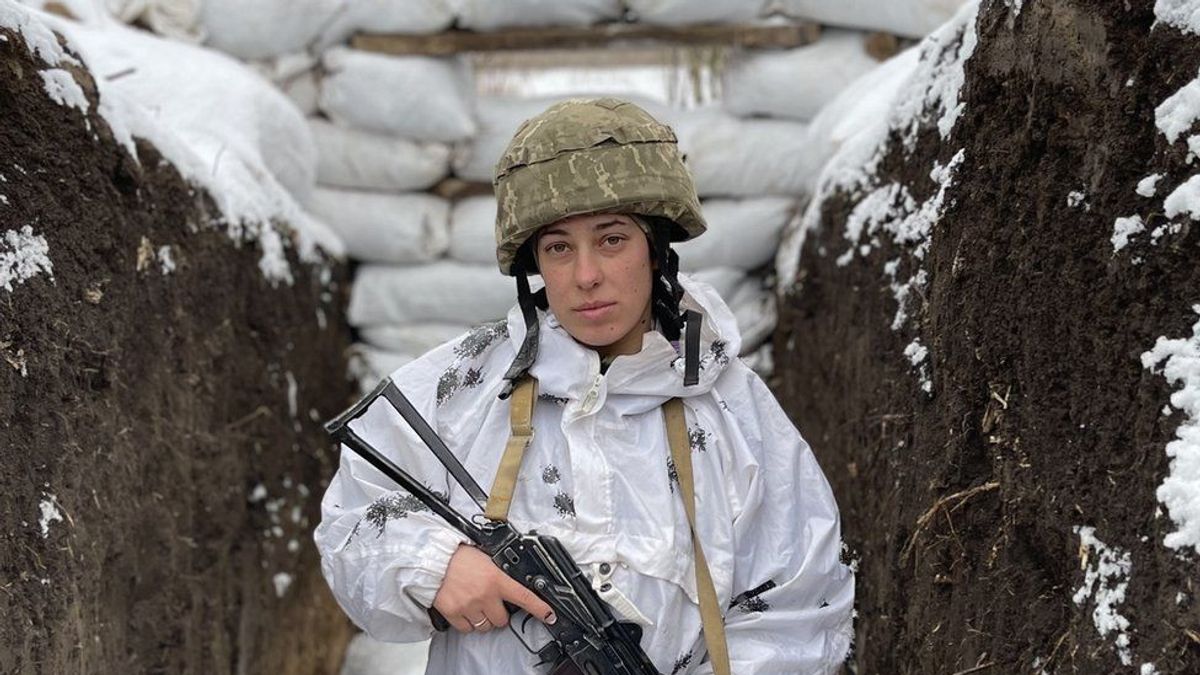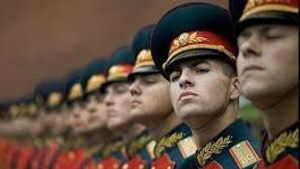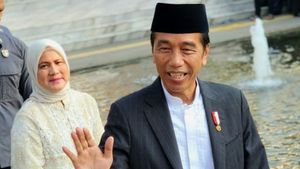"War does not need to happen, no one has to die. There is no winner in every war, or perhaps Plato was right: only the dead have seen the end of the war."
JAKARTA - In the history of human civilization, generally wars have occurred because of the struggle for power, influence, honor, and natural resources. Various means are used for peace, but it seems that it will be difficult to stop the war and live a peaceful life side by side. As is happening in Russia and Ukraine today.
The long list of wars adds to the Russian conflict against Ukraine that took place in the early 2nd century. The wars that followed World War II were generally shorter, but wars were wars that caused misery and demeaned human dignity.
But apparently, the human brain is not programmed to target let alone kill other people who are its enemies in war.

In the journal Translational Psychiatry published on April 26, 2021, it is shown that the soldiers assigned to the war suffered greatly. The wars they face make the volume of several parts of the brain decrease, namely the anterior cingulate cortex, prefrontal cortex, and thalamus. The reduction in brain volume would continue for up to six months after the soldiers returned from the battlefield.
The human brain is created with compassion. Guilt pain to see the person who was hurt by them. The sensitive level of the brain makes hurting or killing other people a heavy burden, many brain obstacles to overcome.
Even though killing is legal in war, it will still cause a protracted sense of guilt. The reduction in the volume of this part of the brain is believed in the future to affect the mental health of the soldiers.
History of War
The demands to survive, protect themselves from the threat of danger from other groups, defend territory, make war considered a natural behavior for humans.
Archaeologists noted that based on the findings of artifacts, the first war took place at Jebel Sahaba on the Nile River, north of Sudan in 12 thousand BC. The war occurred because of a lack of food sources. In addition, there are also recorded wars between a number of villages north of the Tigris River, the Turkic-Syrian region, and northern Iraq today in 9750 BC-8750 BC.
Meanwhile, according to R Brian Ferguson, professor of anthropology at Rutgers University, Newark, the United States in his writings in Scientific American Magazine, September 1, 2019, war is estimated to have occurred 12,000 years ago. The intensity has increased since 6000 years ago, when hunter groups in Europe were already living sedentary lives with increasingly large populations.
SEE ALSO:
Since evolving more than 200,000 years ago to becoming a hunting group, humans have cooperated and co-existed with one another in small groups. They move together to explore vast territories with limited holdings.
At that time, hunter-gatherer groups in Europe had begun to live sedentary lives with populations reaching hundreds of people per group.
However, the conflict that occurred at that time, could not be called a war because the killings that occurred were generally for personal reasons. Meanwhile, war is collective or social in the form of groups to attack other groups.
Psychological Review
The first war psychologist William James in 1910 suspected that war was caused by the negative psychological effects of war, both on individuals and on society. The effects of war are thought to make it difficult for humans to live in peace, even though humans are actively creating peace. Throughout the history of war, the motivation for mastering and increasing wealth has been easy to find with a number of variations.

Humans are creatures who are very attached to a sense of belonging, including identity, ethnicity, nationalism, or religion. War triggers people to be loyal to the group identity, so that a sense of attachment or part of the group emerges.
War due to this group identity is also easy to find in Indonesia, including the conflicts that occurred in Ambon, Maluku, and Poso in the late 1990s to early 2000s. Conflicts with ethnic, religious, racial, and inter-group nuances are actually rooted in competition for economic and political resources between groups.
Peace Development
Before the conflict between Russia and Ukraine erupted, Europe was a relatively peaceful region since World War II ended. Steven Pinker in The Better Angels of Our Nature (2011) said that after World War II until the 1980s, wars actually occurred within countries, not between countries. After the 1980s, conflict, and war relatively declined.
This peace occurred through various efforts from nuclear control, the growth of democracy, the presence of peacekeepers, to the collapse of the Soviet Union which ended the era of the cold war with the United States and its allies.

According to James, sports competitions are also able to suppress the ego to fight because sports competitions provide moral values that are equivalent to war.
By continuing to slowly develop the path of peace, it is believed that the human species will get out of the instinct of war. Peace between Russia and Ukraine is the hope of everyone in the world, although there is no certainty when it will end.
The English, Chinese, Japanese, Arabic, and French versions are automatically generated by the AI. So there may still be inaccuracies in translating, please always see Indonesian as our main language. (system supported by DigitalSiber.id)


















